- Home
- Keith Douglass
Alpha Strike c-8
Alpha Strike c-8 Read online
Alpha Strike
( Carrier - 8 )
Keith Douglass
Carrier Battle Group 14 is in the South China Sea on routine patrol when a Chinese tank and the tiny island where it is stationed are destroyed. The Chinese government points its finger at the U.S. forces, but the Americans are as baffled by the explosion as the Chinese appear to be. As CBG-14 continues Freedom of Navigation operations in the area, unexplained attacks continue and America is on the brink of war again. It is up to CBG-14 to defuse the situation or, at least, protect its assets from an all-out Chinese attack.
Keith Douglass
Alpha Strike
PROLOGUE
Friday, 21 June
1400 local (Zulu -7)
Guazhong Advanced Aviation Test Facility
China
Mein Low swore as the adversary Chinese Sukoi-27 Flanker vanished into the blinding glare. He could almost feel the other pilot yanking his aircraft into a hard, gut-wrenching turn, bringing his guns to bear on Mein Low’s advanced prototype F-10 fighter while the sun hid his turn.
In combat the lines between men and aircraft blur until the difference between them disappears. My vision — the radar. My will — the weapons. And so it is for him as well. We both know only one of us will land after this knife fight.
The sky flashed metal, slightly above him at ten o’clock. The Flanker pilot had underestimated the width of his cloak of invisibility, exposing one wingtip. The attack geometry flashed into Mein Low’s mind.
Bleed off air speed, turn, and drop in behind me for the killing shot. But now that you’ve exposed your direction of turn, you’ve lost the advantage of uncertainty. And you will lose this engagement as well!
Mein Low jerked the F-10’s nose up to thirty degrees above the horizon and rolled to the right, keeping his eyes glued to the approaching Flanker. The seat fell away slightly from his back as the faster and more maneuverable F-10 slowed rapidly. Fifteen hundred feet later, Mein Low was inverted, craning his neck back to stare down at the Flanker desperately trying to turn away from him.
Too late. The Flanker had given up too much precious airspeed in his last maneuver. As the Flanker drew parallel beneath him, Mein Low completed the roll, dropped the nose of the aircraft down, and dove into a killing position behind the slower aircraft.
The Flanker bobbed and jinked, and the turbulence from his jet’s engines battered the F-10. Mein Low’s hand clamped down around the control stick. His weapons selector switch was already toggled to guns. The F-10’s cannon spat out six thousand rounds per minute, stitching the Flanker’s side.
The other aircraft’s canopy exploded in shards, and the metal framework peeled back from the rest of the airframe. He caught a glimpse of the other pilot, crumpled and bloody in the cockpit, before leaking fuel met hot metal. Mein Low jerked his fighter into a tight turn just as the Flanker exploded into a bloody red-orange fireball.
Only one more test. Five miles from the training field, a Grumble surface-to-air missile waited, the final obstacle to full funding of the F-10 program — his program — and his promotion to Wing Commander. Defeat it, and Mein Low would vault up the ladder of power and prestige in the Chinese army.
The radar threat indicator screamed a warning microseconds before the missile symbol blipped onto the heads-up display in the cockpit. Mein Low shoved the throttle on the F-10 forward, dumping raw fuel into the jet’s engine. In seconds, the aircraft muscled its way through the shock waves that battered the aircraft at Mach.9 and accelerated past Mach 1.
Against a Mach 3 missile, the fighter’s supersonic speed was almost irrelevant. Still, the point of the operational exercise was to prove the capabilities of the next-generation Chinese fighter operating at the edge of its envelope.
Let them tell the Flanker pilot, now spread across five miles of desert with his aircraft, that it was just an operational test!
The missile closed to five miles.
Mein Low twitched his finger, activating the countermeasures toggle on the stick. Four gentle thumps shook the aircraft as a combination of flares, chaff, and electromagnetic decoys shot out of the belly slots. The pilot stabbed the preload button on his G-suit. As soon as he felt the pressure on his extremities increase, he threw the sleek jet into a hard breaking turn, tensing every muscle in his torso to augment the effects of the constrictive flight suit and force increased blood flow to his brain.
Cold sweat soaked his flight suit as he fought against unconsciousness. He would enter the next cycle of life knowing whether or not he’d succeeded, not blindly exiting this life without ever knowing the results!
Time slowed to a crawl. He had all eternity to watch the deadly white missile grow larger, the tiny oscillations in its flight stilled as the Front Dome radar tracker and illuminator seeker head zeroed in on the jet, so close now he imagined he could see the invisible pulses of energy radiating out from its nose.
Suddenly, the missile twitched. Its nose dropped a few inches as it shifted its aim.
It worked! Cold joy filled Mein Low, and time resumed its normal speed. A white flash of death streaked past him and impacted the cluster of decoys behind and below the F-10.
Turbulence from the blast almost accomplished what the missile had failed to do, knocking the jet nose down and tail high. The F-10’s air speed plummeted into the stall region in seconds, and Mein Low’s vision narrowed to a tiny pinpoint of light.
The barely conscious pilot fought the jet back into stable flight, regaining control five thousand feet above the barren plains. With stall warning buzzers and threat indicator alarms still ringing in his ears, he automatically turned the jet toward the airfield.
Fifteen minutes later, he was on the deck. A wave of cheering technicians, scientists, and engineers swamped the fighter the second it stopped its roll-out. The crowd pulled Mein Low from the cockpit and carried him on their shoulders to the hangar. By the time his feet finally hit the tarmac, his hands had stopped shaking.
Still dazed, he raised his right hand to the crowd. The assembled mass fell silent.
“Today,” he said, surprised his voice remained steady, “we regain control of our skies. Your hard work and dedication have given your country the next generation in fighter aircraft. With it, I pledge to you restoration of our historic rights over the South China Sea. Each victory in the air is not ours — it is yours!”
He raised his hand again, and let the roar of the crowd wash over him.
CHAPTER 1
Saturday, 22 June
0810 local (Zulu -7)
South China Sea
Tomcat 205
Bird Dog slammed the stick to the right, rolled the F-14 Tomcat over onto its back, and craned his neck back to stare down through the canopy at the South China Sea fifteen thousand feet below. From that altitude, the whitecaps were mere fly specks on the dark blue water. A gash of silver cut east to west across the sea, the last remnants of the aircraft carrier’s wake. He hung suspended between sky and water for ten seconds, blood pounding in his head, and then rolled the Tomcat back into level flight.
Angels fifteen, CAVU (Clear Air, Visibility Unlimited) and a Tomcat strapped to my ass — life doesn’t get any better than this! If it doesn’t trip the Master Caution Light or yell at me over tactical, it’s not worth worrying about. Not as long as I’m up here.
Lieutenant Curt “Bird Dog” Robinson was long overdue for a little slice of heaven. In the last three weeks of Navy life, he’d learned that being an F-14 pilot was a lot more complicated than they’d told him it would be. It wasn’t the flying — no, not that at all. That was the only thing that was sweet about being a junior nugget in VF-95, the sharpest fighter squadron onboard USS Jefferson. It was all the other stuff. The paperwo
rk, the endless administrative details that occupied far too much of his waking hours, and the problems that plagued his work center, the Aviation Electricians Branch.
A weary sigh came over the ICS. “You want to let me know the next time, asshole?” Lieutenant Commander Charlie “Gator” Cummings, his Radar Intercept Officer (RIO) asked. “What if I’d been taking a leak? And wasn’t this briefed as a straight and level mission?”
“I was straight and level,” Bird Dog said hotly, sidestepping the issue of whether or not he should have alerted his backseater before rolling the Tomcat inverted. “What wasn’t straight and level about that?”
“Upside down?”
“So? No one told me I couldn’t. They just said straight and level. And, if you had any judgment at all, you’d have to agree that that was about the straightest, levelest inverted flight you’ve ever been privileged to experience!”
Another deep sigh was the only response from the backseater.
Automatically, Bird Dog kept up his scan, glancing down at the cockpit instrumentation every few seconds and then back up at the horizon. The line between water and empty air blurred into haze in the distance. He concentrated on the hard throb of the Tomcat’s engines, the familiar growl radiating into his body at every point that it touched his ejection seat. Now, if his backseater would just stay quiet, maybe he could escape back into that perfect union of man and aircraft where nothing mattered but airspeed and altitude.
No such luck.
A metallic flash off to his right brought him back to reality. Irritated, Bird Dog toggled the communications button. “Jeez, Spider, give me a little airspace! What’s the matter, afraid you’re going to get lost?”
“Sorry.” His wingman slid back and away from Bird Dog’s aircraft.
“Better,” Bird Dog mumbled. He tapped the throttle forward slightly, increasing his airspeed just enough to pull ahead and put Spider out of view.
“Ten minutes, Bird Dog,” Gator announced.
“I know, I know. You think I’ve been somewhere else for the last hour?”
His backseater fell silent again.
Bird Dog sighed and tried to recapture the euphoria he’d been feeling a few minutes earlier. The daily look-see presence patrol over the Spratly Islands in the South China Sea was the most boring, useless waste of the powerful fighter’s capabilities that he’d ever seen, but at least he was flying instead of playing Navy. Flying he could do. It was the Navy business that went along with it that was giving him problems.
Below him, the Spratly Islands were spread over an area about the size of Montana. The cluster of sandbars, rocks, and occasional islands was a key flash point in the South China Sea and the Far East. China, Vietnam, Malaysia, and the Philippines all laid claim to the area and the rich oil-bearing seabed below it. Lately, both China and Vietnam had started building “fishing camps” on the islands. The presence of tanks and guided missile emplacements in “fishing camps” indicated that both nations were expecting a little more than economic competition.
“First rock coming up,” Gator said a few minutes later.
“Okay, okay. Anything around?”
“Nothing new. I probably would have told you if there were.”
Bird Dog winced at the chilly note of reproach in his RIO’s voice. Not only was Gator a friend, he was also considerably senior to Bird Dog.
“Sorry, Gator,” he said finally. “Just in a bad mood today, I guess.”
“Happens. Best get your head out of your ass and fly this mission, though. If I tell you to move, I want to see some action up front.”
“Yeah, yeah. Like anything’s going to happen. We’ve been circling this pile of rocks for days, and nobody’s ever shown up to play with us. And it ain’t like there’s anything on those rocks that’s going to shoot at us.”
“You really think you’re immortal? ‘Cause if you do, you can let me off at the next pit stop.”
“No, I know they’ve got Stingers. But why in the hell would they shoot one at us? We’re not at war with anyone. I don’t even know what we’re doing here!”
“National security, Bird Dog. Didn’t you read the OP-ORDER? We’re supposed to keep China from making a grab for the islands.”
“Like it’s any of our business anyway. Who cares whether the Chinese or the Vietnamese or the Malaysians end up owning these islands?”
“You’ll care, if China throws everybody else out by force. No way we could let her start establishing a regional hegemony, and that’s what will happen if she gets her hands on that oil.”
Bird Dog moaned. Not only was he required to fly straight and level — no aerobatics, no fooling around — in the world’s best fighter, but he had to listen to lectures on world politics at the same time.
“One minute away from Mischief Reef, thirty seconds to Island 203,” Gator added. “T-54 tank, probably some Stingers with it.”
“Got that, Spider?” Bird Dog said over the radio circuit. One short click acknowledged the transmission.
Great. Now even his wingman wasn’t speaking to him.
0820 local (Zulu -7)
Island 203
Spratly Islands, South China Sea
Chu Hsi crawled out of the tank and stretched. He glanced around, hating the naked vulnerability of his post. Fifteen years in the Chinese army, most of those as part of a tank crew, had ingrained in him an instinctive longing for maneuverability that was the key to survival in land warfare. Trapped on this rock, barely out of the reach of the sea, his tank rusting under the constant mist of sea spray and his instincts screaming reflexive warnings about his immobility, Chu Hsi could only wonder at the thinking of his superiors.
The rock had no name, and was barely even far enough above water to be called an island. Twenty meters long and eight meters wide, its ragged peak protruded only two meters above the waves. Two weeks earlier, a transport helicopter had deposited the T-54 Russian-made tank and its two-man crew on the rock. Perched squarely in the middle of the rock, tilted and uncomfortable ten degrees off plumb level, his tank looked forlorn and abandoned.
Doctrine called for maintaining a continual alert status and radio watch, though he’d never known — nor bothered to ask — why. Mischief Reef, five miles away and barely visible through the haze and the fog, was the command post for this area of the South China Sea. Its elaborately constructed bamboo-and-corrugated-sheet-metal main camp perched on an island six times the size of Chu Hsi’s rock.
The Mischief Reef camp was three stories tall, the lowest floor almost twenty feet above the island’s surface. While the island itself might be able to boast of more surface area than Chu Hsi’s rock, most of it was awash in the sea. Even the drinking water there had a faintly salty taste. The stilts were necessary to keep the structure away from the ever-hungry ocean.
From a distance, the structure looked like it might teeter and fall into the warm South China Sea at any moment, but appearances were deceiving. Centuries of practice had given the Chinese the ability to construct deceptively strong buildings out of little more than bamboo, twine, and wire. The two-inch-diameter poles were woven together in such an intricate interlace that the resulting building could withstand almost anything short of a typhoon.
Chu Hsi held up one hand to block the sun and gazed longingly at the larger camp. Life was easier there, certainly. On his last trip to the base camp, he’d seen the catchment basins used to collect rainwater. One of the soldiers had told him that they were allowed two gallons of water every week just for bathing, a luxury Chu Hsi’s crew would have to forego for the three weeks of their tour on the rock. By the time their tour was up, the salt that collected on their skin would have started to chafe open sores around their collars. Only changing socks every three days kept their feet from disintegrating into molding, festering tissue.
A distant roar reached his ears, barely audible above the noise of the waves lapping at his rock. Chu Hsi scanned the horizon, finally locating the source.
Mo
re aircraft. Probably the Americans again, he thought. He called his gunner. The daily overflights by aircraft and the hourly radio checks with the Mischief Reef camp were the only relief from terminal boredom.
His gunner popped his head out of the tank, and then pulled himself up to join Chu Hsi on the deck.
“Back again, yes? Maybe someday we can make life more interesting for them. I have just the toy to do it with!”
“You really believe you could hit an American fighter with that device?” Chu Hsi laughed. “About as much chance as us hitting it with this tank!”
“You wait.” The gunner looked pointedly at his Stinger, and hefted it to his shoulder. The Stinger, a U.S.-built shoulder-launched infrared guided surface-to-air missile, had proved its reliability in every combat theater in the last fifteen years. It had been the primary reason for the Soviet defeat in Afghanistan. Chu Hsi had seen the demonstrations, and was impressed. But he wasn’t about to tell his gunner that.
“I won’t hold my breath.”
The two men watched the aircraft grow larger, impossibly fast. The light gray shapes were hard to see in the ever-present haze that clung to the surface of the warm sea, but the contrails that formed in the warm air were clear.
“F-14. I will make the report.”
“Which is so necessary,” Chu Hsi sneered. “As though our superiors on the next island can’t see and hear it just as clearly as we can.”
The gunner paused, half in and half out of the tank. “It is a requirement. You are aware of that.”
Chu Hsi waved him down, suddenly tired of baiting the gunner. Useless entertainment, since nothing ever pierced the gunner’s humorless devotion to operational requirements. The sheer boredom of sitting in a tank on a rock in the middle of the ocean would probably kill both men before anything else.
The American aircraft disappeared over the horizon. Chu Hsi took a step back toward the open hatch. The minutes until the next hourly radio report stretched interminably before him. Chu Hsi sighed.

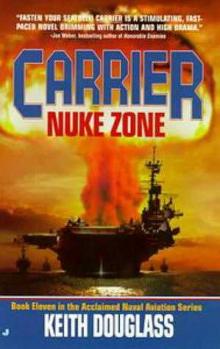 Nuke Zone c-11
Nuke Zone c-11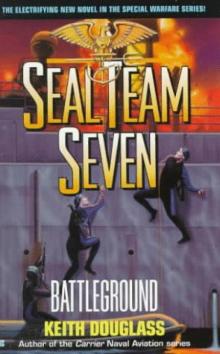 Seal Team Seven 6 - Battleground
Seal Team Seven 6 - Battleground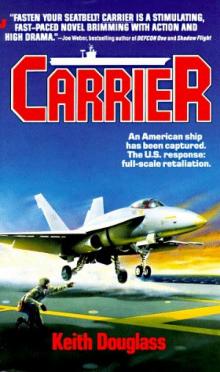 Carrier c-1
Carrier c-1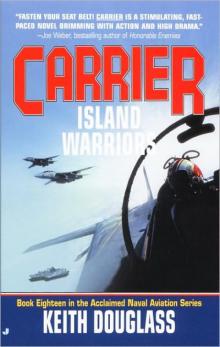 Island Warriors c-18
Island Warriors c-18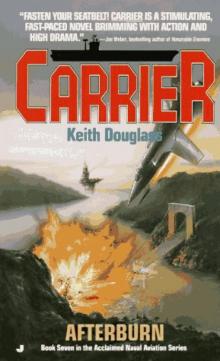 Afterburn c-7
Afterburn c-7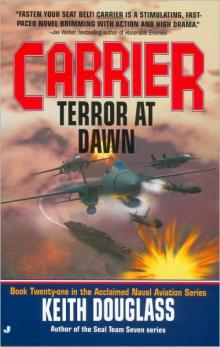 Terror At Dawn c-21
Terror At Dawn c-21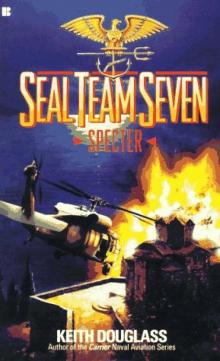 Specter sts-2
Specter sts-2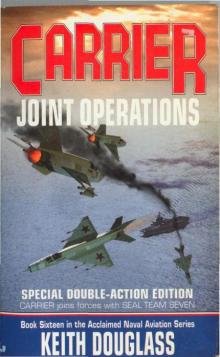 Joint Operations c-16
Joint Operations c-16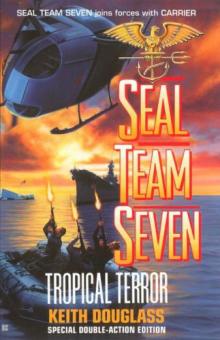 Tropical Terror sts-12
Tropical Terror sts-12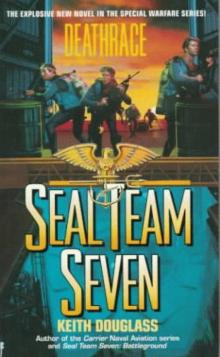 Seal Team Seven 7 - Deathrace
Seal Team Seven 7 - Deathrace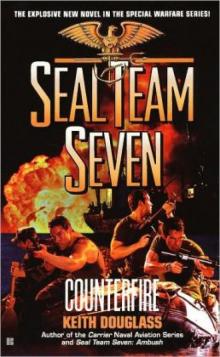 Counterfire sts-16
Counterfire sts-16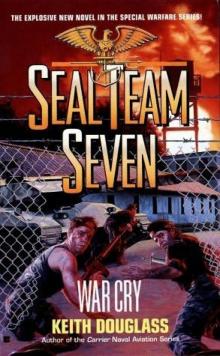 War Cry sts-9
War Cry sts-9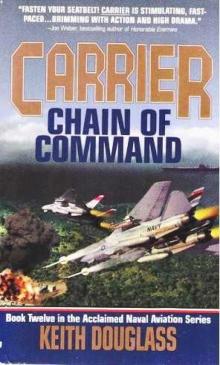 Chain of Command c-12
Chain of Command c-12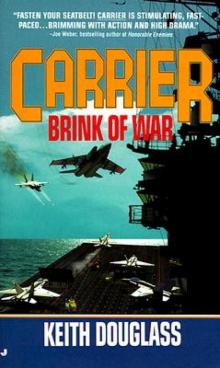 Brink of War c-13
Brink of War c-13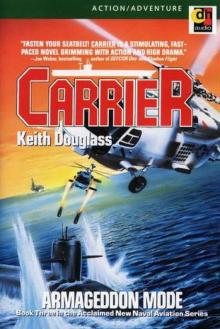 Armageddon Mode c-3
Armageddon Mode c-3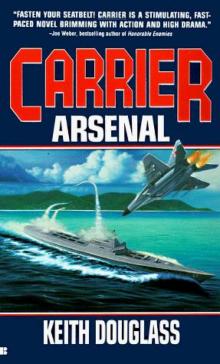 Arsenal c-10
Arsenal c-10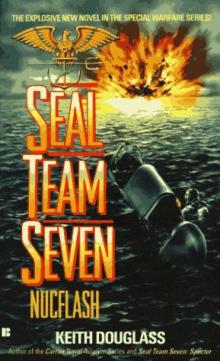 Nucflash sts-3
Nucflash sts-3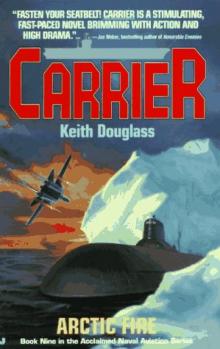 Arctic Fire c-9
Arctic Fire c-9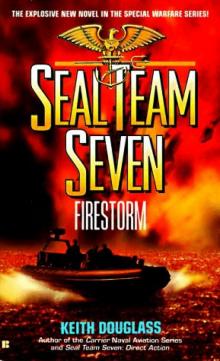 Firestorm sts-5
Firestorm sts-5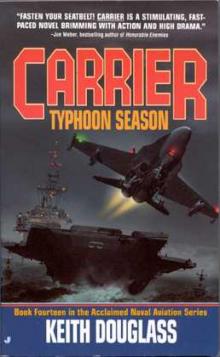 Typhoon Season c-14
Typhoon Season c-14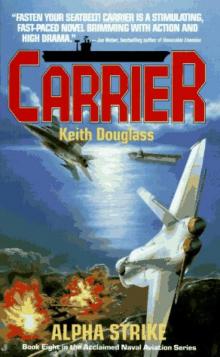 Alpha Strike c-8
Alpha Strike c-8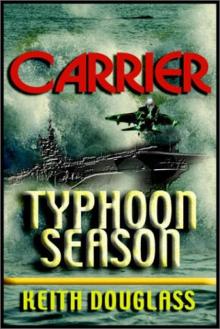 Carrier 14 - TYPHOON SEASON
Carrier 14 - TYPHOON SEASON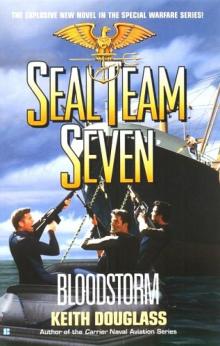 Bloodstorm sts-13
Bloodstorm sts-13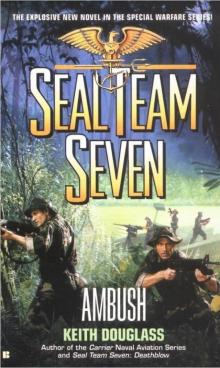 Ambush sts-15
Ambush sts-15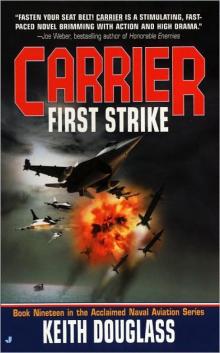 First Strike c-19
First Strike c-19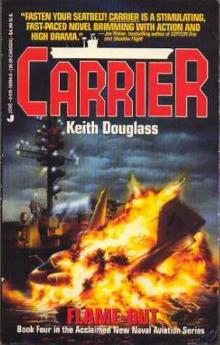 Flame Out c-4
Flame Out c-4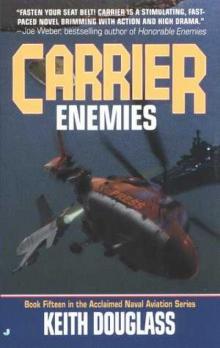 Enemies c-15
Enemies c-15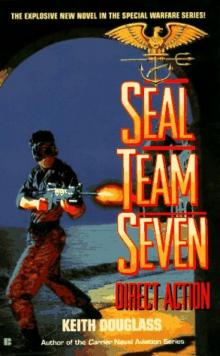 Seal Team Seven 04 - Direct Action
Seal Team Seven 04 - Direct Action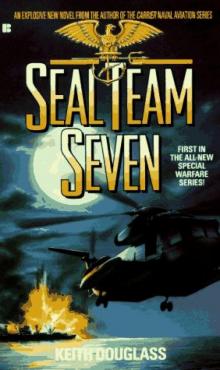 Seal Team Seven 01 - Seal Team Seven
Seal Team Seven 01 - Seal Team Seven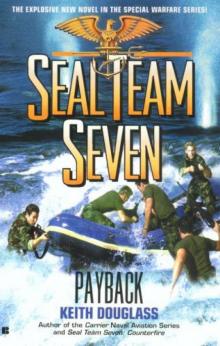 Payback sts-17
Payback sts-17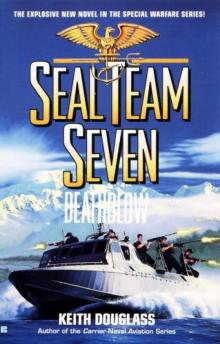 Death Blow sts-14
Death Blow sts-14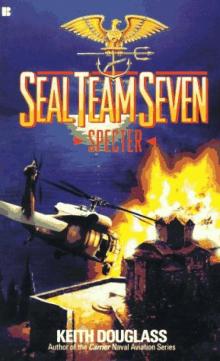 Seal Team Seven 02 - Spector
Seal Team Seven 02 - Spector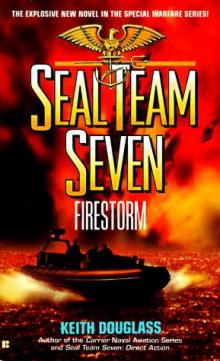 Seal Team Seven 5 - Firestorm
Seal Team Seven 5 - Firestorm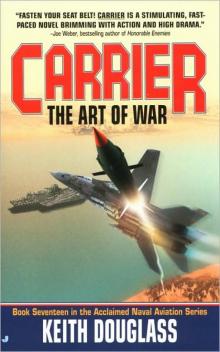 The Art of War c-17
The Art of War c-17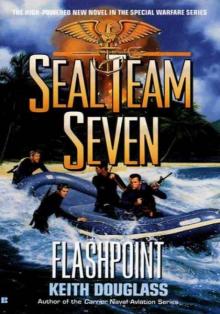 Flashpoint sts-11
Flashpoint sts-11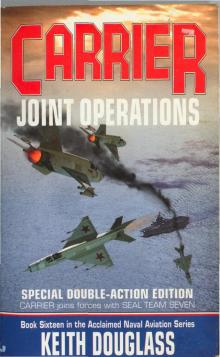 Carrier - Joint Operation Book 16
Carrier - Joint Operation Book 16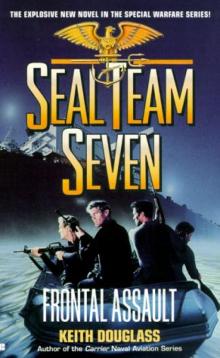 Frontal Assault sts-10
Frontal Assault sts-10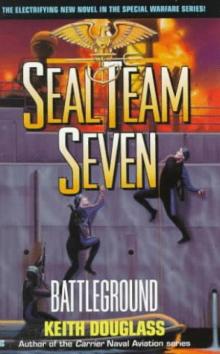 Battleground sts-6
Battleground sts-6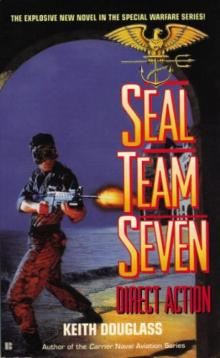 Direct Action sts-4
Direct Action sts-4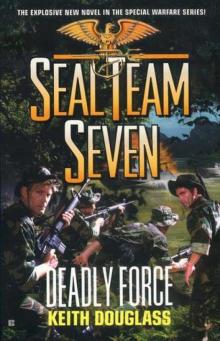 Deadly Force sts-18
Deadly Force sts-18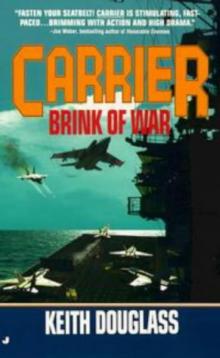 Carrier 13 - Brink of War
Carrier 13 - Brink of War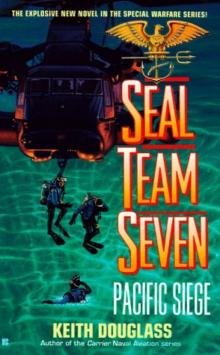 Pacific Siege sts-8
Pacific Siege sts-8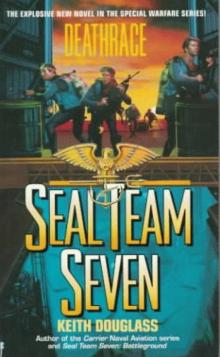 Deathrace sts-7
Deathrace sts-7